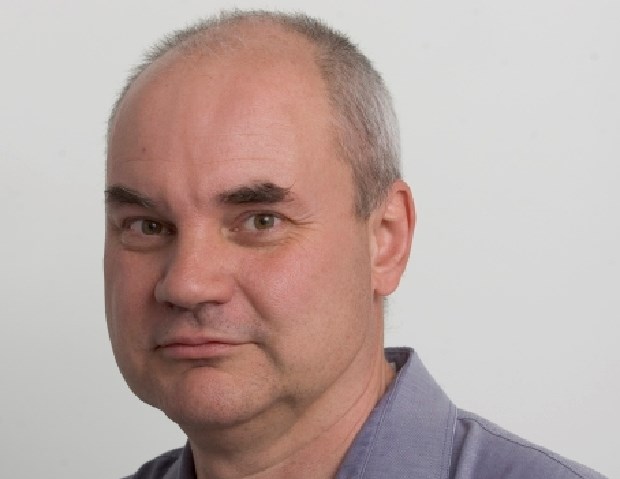The story isn’t that CFB Esquimalt is waving good-bye to an openly gay base commander.
The story is that it isn’t a story.
The story is that in the space of a generation, Commodore Luc Cassivi’s homosexuality has gone from being grounds for expulsion from the Canadian Armed Forces to being totally irrelevant, grounds for nothing more than a shrug. That’s a good thing.
Cassivi and partner Francisco Mejia De La Rosa are packing up, preparing to move to Ottawa, where Cassivi will become director general at National Defence Headquarters.
It’s a far different navy than the one in which Cassivi enlisted in 1983, when gays in the military were “very much deep in the closet,” he says. Back then, a standing order said anyone suspected of homosexuality should be investigated and, if the allegation was proven, chucked out of the Forces.
“We had a special investigative unit, part of the military police, that was actively trying to find the folks who were so inclined and drive them out of the service,” Cassivi says.
People like him stayed under the radar. “Those who were dedicated to the service, and who wanted to continue to serve, maintained two lives,” he says.
It meant putting up with a lot of crap that wouldn’t be tolerated today. “There was a time that — call it bashing, call it bullying, call it a bad sense of humour — it was all there.”
That wasn’t just limited to the military, though. The same attitudes prevailed in the corporate world, even if the systemic discrimination wasn’t codified. Whether it was in the wardroom or the boardroom, the derisive comments were the same. “It was like Newfie jokes. In those days, nobody had a second thought about saying those things.”
The pendulum swung in 1992 when, following a court challenge by Michelle Douglas, who had been forced out of the Air Force in 1989, the Canadian Forces cancelled the regulation banning gays and lesbians. While that makes it sound as though the bosses only moved because there was a judicial gun to their heads, there was in fact little resistance from those in power.
The military might be rooted in tradition and conservative values, but by the early ’90s the brass didn’t need much persuading that change was needed.
“We had some great leaders who said, ‘This is the Canadian thing to do, this is the right thing to do,’ ” Cassivi says.
It wasn’t as though the entire culture of the Armed Forces changed with the stroke of a pen, though. Changes in institutional policy don’t always occur in tandem with changes in people’s beliefs. Sometimes the law has to play catch-up with a shift in public attitudes, and sometimes the attitudinal shift gets nudged along by the change in law. In the case of the military and gays, the latter was the case. “The policy was ahead of culture in that era, but it was the right thing to do.”
Despite the lifting of the ban, Cassivi wasn’t sure the culture really would transform, or that he wanted to stay in the service if it didn’t. Posted to the Royal Australian Navy for three years, he used the time away as a chance to see whether change would be accepted. Returning to Canada in 1997, he was pleased — though not really surprised — to see people had adapted. “Deep down, I had some faith, because I had seen the transformation when women joined the ranks.”
He also knew that his colleagues weren’t blind, that even before the ban was lifted many of them knew who he was and supported him as a valued co-worker.
There’s the key. “The best way to break barriers is to establish yourself as competent at what you do,” he says. Either you can do the job or not. Either your co-workers can count on you or not. After that, the other facets of who you are — race, gender, sexual preference — become secondary. Cassivi has been in charge of three submarines, a frigate and a naval base; what else do you need to know?
If this seems blindingly obvious today, nine years after same-sex marriage became a non-issue in Canada and a year after an openly gay Anglican priest became head chaplain of the Canadian Armed Forces, well, that wasn’t always the case. (And note that it took until 2011 for the U.S. to finally dump its military’s “don’t ask, don’t tell” policy in favour of actual acceptance.)
Sometimes a non-story is the best story of all.



